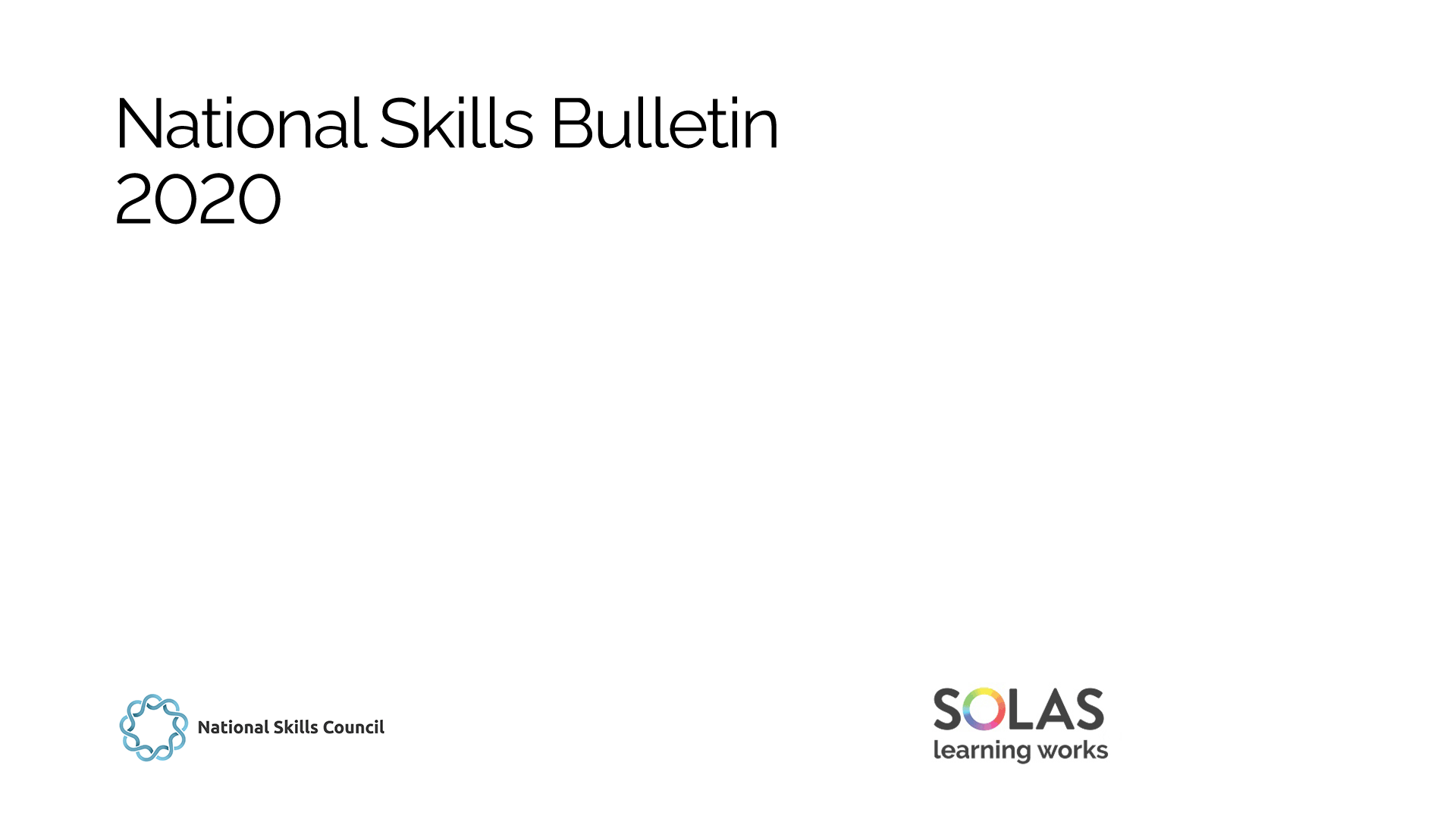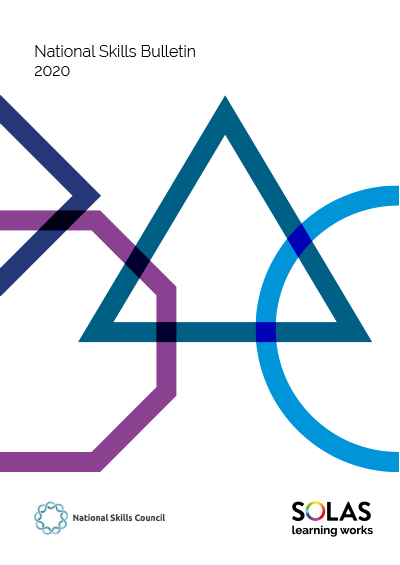| | The Skills & Labour Market Unit (SLMRU) in SOLAS are delighted to announce the release of the latest National Skills Bulletin. This is the sixteenth in an annual series of reports and the fourth to be produced on behalf of the National Skills Council (NSC). The Bulletin aims to assist policy formulation in the areas of employment, education/training, and immigration (particularly the sourcing of skills which are in short supply in the Irish and EU labour market from the EEA); it also aims to inform career guidance advisors, students and other individuals making career and educational choices. In quarter 4 2019, Ireland’s population was estimated at 4.95 million persons, 63,700 more than in quarter 4 2018. Compared to quarter 4 2018, employment for the working age population (persons aged 15-64) increased by 64,300 (both full-time and part-time employment increased), while the number of persons not in employment (unemployed or economically inactive) decreased. The number of children (persons younger than 15 years) was 1 million (similar to the number observed in quarter 4 2018), while the number of persons aged 65 or older was 709,400, which is 24,100 more than in quarter 4 2018. The number of persons in employment in that age group was 92,200 - 15,600 more than that observed in quarter 4 2018. |
|
| |
|
|
| Population by Labour Market Status (ILO defined), Quarter 4 2019 Source: SLMRU (SOLAS) analysis of CSO data
* Asterisk indicates that the number is too small to report |
While the report primarily examines the labour market situation at the end of 2019, the detailed outlooks provided across almost 100 occupations reflect the changing economy since the onset of COVID-19. Some sectors, such as wholesale and retail and accommodation and food, have been severely impacted by the virus. Those employed across all occupations have seen significant changes to their working life, with the widespread adoption of remote working, the implementation of social distancing protocols and indeed the closure of businesses, albeit mostly on a temporary basis. Other skills challenges also remain, such as those relating to Brexit, attracting skills from overseas, changing demographics, and the risk of automation. Ireland faces a significant upskilling and reskilling challenge as a result of increased digitalisation of the workforce and ensuring that those who have lost their jobs as a result of COVID-19 have the skills required to re-enter the workforce. The National Skills Bulletin aims to assist with this effort through the identification of the challenges that are arising at occupational level and to examines the people employed in these occupations. For example, of those occupations most severely affected by COVID-19 to date, such as sales assistants, waiters/waitresses, and cleaners, we observe that a higher than average share in these occupations are female, working part-time, and have lower levels of education. While much remains unknown, the National Skills Bulletin is uniquely placed to identify the outlook across many occupations and to provide detailed analyses of the profile of the people employed in these roles. |
|
| |
|
|
| The National Skills Bulletin is available here. |
| | |
| |
|
|
| |
|
|













